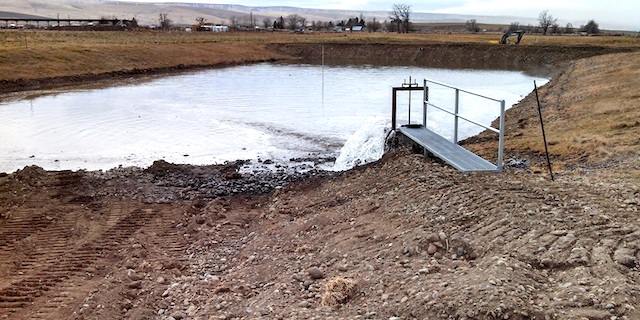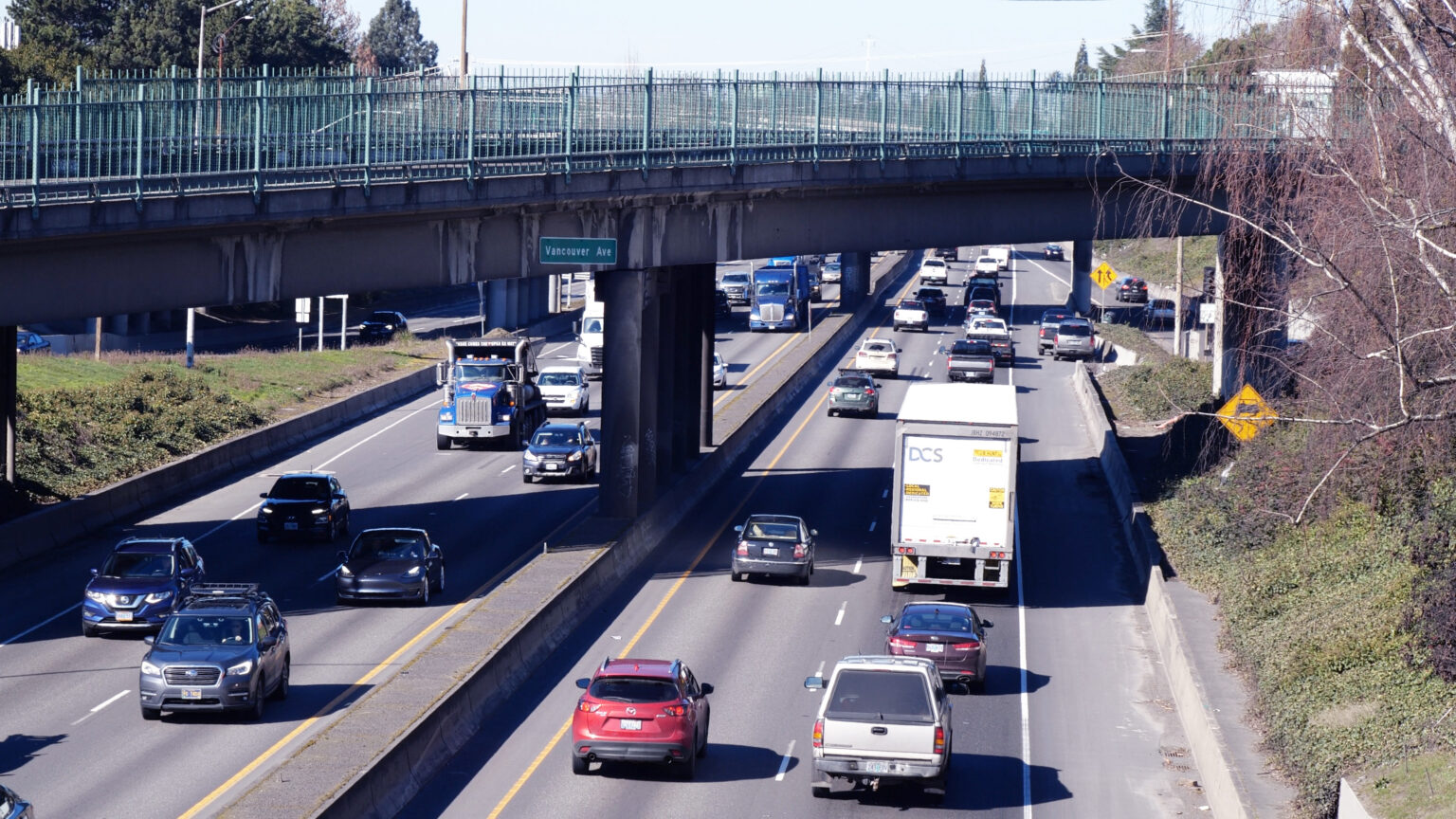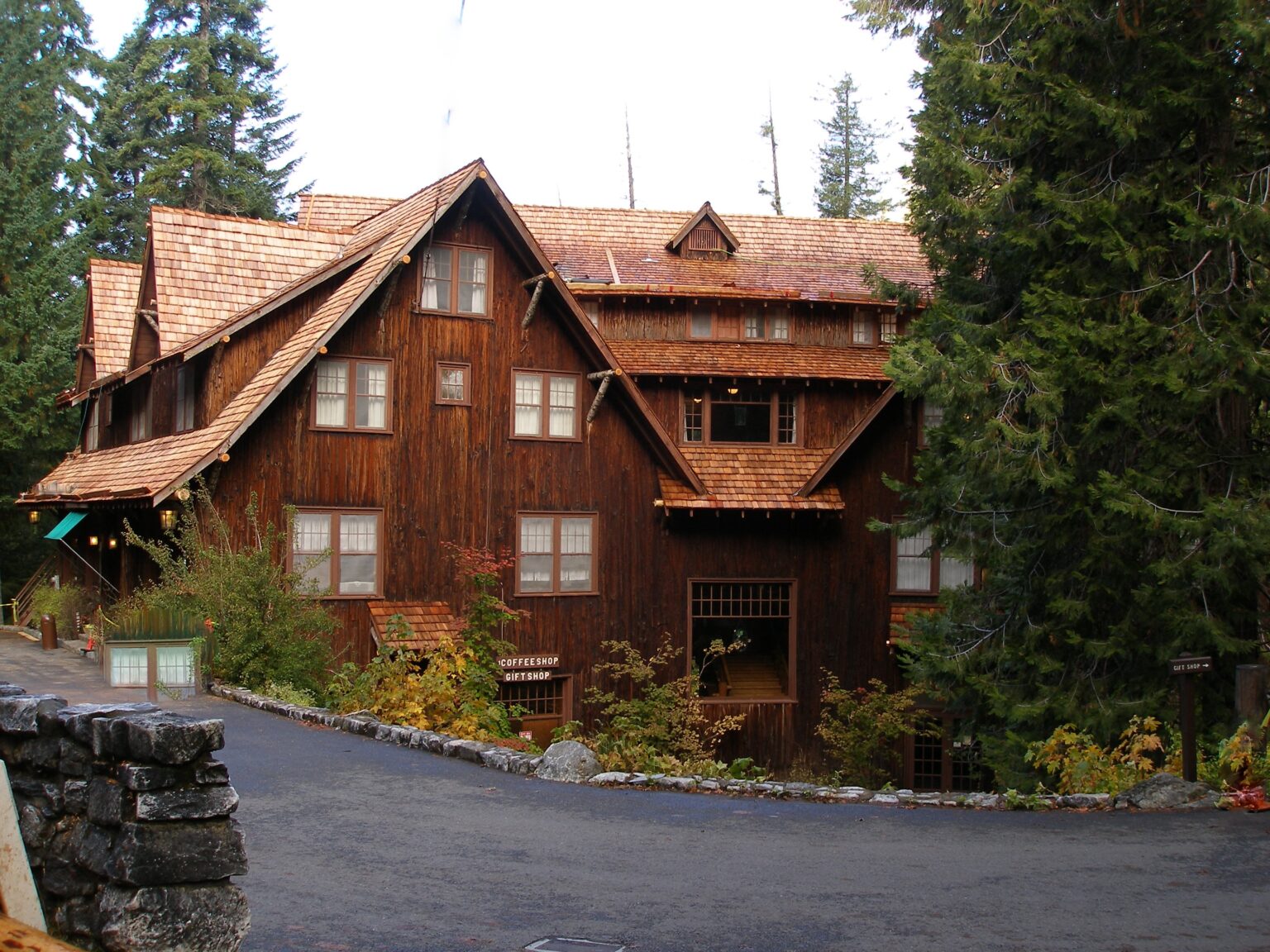Aquifer recharge exempted from groundwater denial proposal
Published 10:40 am Monday, May 5, 2025

- The NW Umapine Aquifer Recharge site in Umatilla County. Aquifer recharge projects would be exempt from Oregon legislation that otherwise seeks to preclude new agricultural well applications in areas with depleted groundwater. (Courtesy Walla Walla Basin 'Watershed Council)
Aquifer recharge projects would be exempt from Oregon legislation that otherwise seeks to preclude new agricultural well applications in areas with depleted groundwater.
The change is meant to respond to objections to House Bill 3342, which aims to simplify water rights administration, but came under fire for potentially interfering with aquifer recharge proposals.
“We made a mistake there and the engrossed version fixes that mistake,” said Rep. Mark Owens, R-Crane, referring to an updated version of the bill recently passed by the House, 37-20.
To reduce litigation and bureaucracy, House Bill 3342 would allow state regulators to preemptively reject water rights applications in several regions with over-appropriated aquifers.
These applications would likely be denied anyway, but under current law, they must still undergo time-consuming reviews and could be subject to contested case proceedings.
Among other provisions of HB 3342, the Oregon Water Resources Department can reject applications without further analysis if they seek to drill agricultural wells in groundwater restricted areas.
However, the possibility of such “automatic denials” was met with alarm by farmers who hope to recharge aquifers with winter flows of surface water, which can later be withdrawn for irrigation.
The fear was that OWRD would dismiss proposals for such “aquifer storage and recovery,” or ASR, out of hand in groundwater restricted areas.
Critics said automatic denials would actually hinder the recovery of depleted aquifers and thwart the remediation of polluted groundwater, which could be withdrawn and replaced with clean river water in such areas as the Lower Umatilla Basin.
In response to those criticisms, the bill was amended to make clear that “the department shall process the permit application if it has to do with artificial recharge, ASR, or remediating the groundwater source,” Owens recently told the Senate Natural Resources Committee, which is now reviewing the proposal.
“We missed some things when we first put this out,” said Owens, who sponsored the bipartisan proposal along with Rep. Ken Helm, D-Beaverton. “We kind of messed up there and we want to clarify that.”
The exception for aquifer recharge projects has heartened the Northeast Oregon Water Association, which represents irrigators and other water users in the region, though the group isn’t yet backing the entire bill.
Other language in the proposal could be interpreted in a way that impedes the organization’s efforts to reduce pressure on groundwater in the area and improve its quality, but those problems should not derail the proposal, said J.R. Cook, the group’s director.
“We think we’re almost there, so we’re not here pounding our chests and saying, ‘Kill this bill,’” Cook said. “We think it’s workable.”
Other provisions of HB 3342 intend to decrease OWRD’s bureaucratic requirements by shifting from paper to digital formats and allowing credit card payments and electronic notices, Helm said.
Hopefully, these revisions will move the agency’s administration of water rights “into the 20th Century, not to mention the 21st,” he said. “The idea is to reduce the administrative burden on the department, so they can get more work done faster.”
The proposal is also meant to discourage “water speculation,” under which water rights applications are extended for prolonged periods but not fully developed, with the goal of having their value increase with time.
Under HB 3342, applicants would have to install irrigation equipment and grow a crop within five years of obtaining a permit, with a possible two-year extension, thus preventing water rights from going undeveloped for decades.
“In 30 years, if there’s a lack of water availability, that permit is worth a whole lot more than what it was,” Owens said.
The amended version of HB 3342 has the support of WaterWatch of Oregon, an environmental nonprofit that seeks to protect waterways and aquifers, said Kimberley Priestley, the group’s senior policy analyst.
“While there are many additional water rights improvements we would like to see, and this bill is more modest than the original, on the whole it does offer significant improvements over existing processes,” she said.
Despite recent revisions, the Oregon Cattlemen’s Association continues to have reservations about the proposal, such as the possibility it will make water transfers less flexible and “create efficiencies but on the backs of water users.”
“We still have some lingering concerns about the bill,” said Sarah Liljefelt, an attorney representing the group.





